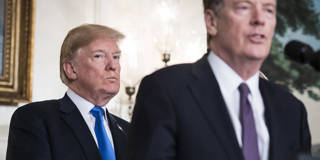Even if trade deficits were a major issue for the US economy, the idea that they should be reduced through levies on foreign purchases of US assets is pure folly. The likely effects of such a policy include higher interest rates and a fall in investment, leading to reduced demand, lower growth, and less innovation.
BERKELEY – This election season in the United States has brought forth many bad policy proposals. One of the worst is the idea that America should pursue balanced trade through taxes on US borrowing from foreigners. Under such a “capital inflow tax,” any US resident selling an asset (such as a stock or bond) to a foreign resident would owe the US government a percentage of the payment he or she receives. Since this would make foreign financing more expensive, interest rates and the cost of capital would rise throughout the economy.

BERKELEY – This election season in the United States has brought forth many bad policy proposals. One of the worst is the idea that America should pursue balanced trade through taxes on US borrowing from foreigners. Under such a “capital inflow tax,” any US resident selling an asset (such as a stock or bond) to a foreign resident would owe the US government a percentage of the payment he or she receives. Since this would make foreign financing more expensive, interest rates and the cost of capital would rise throughout the economy.